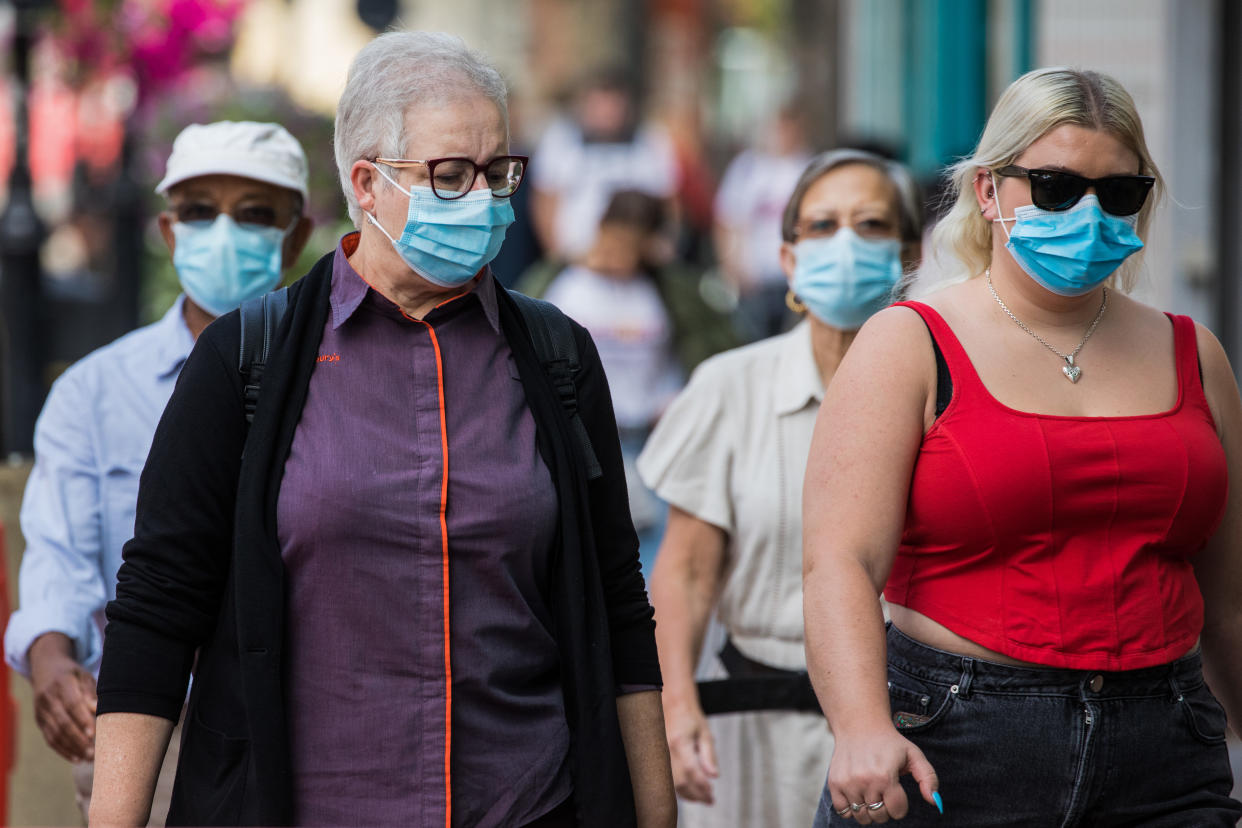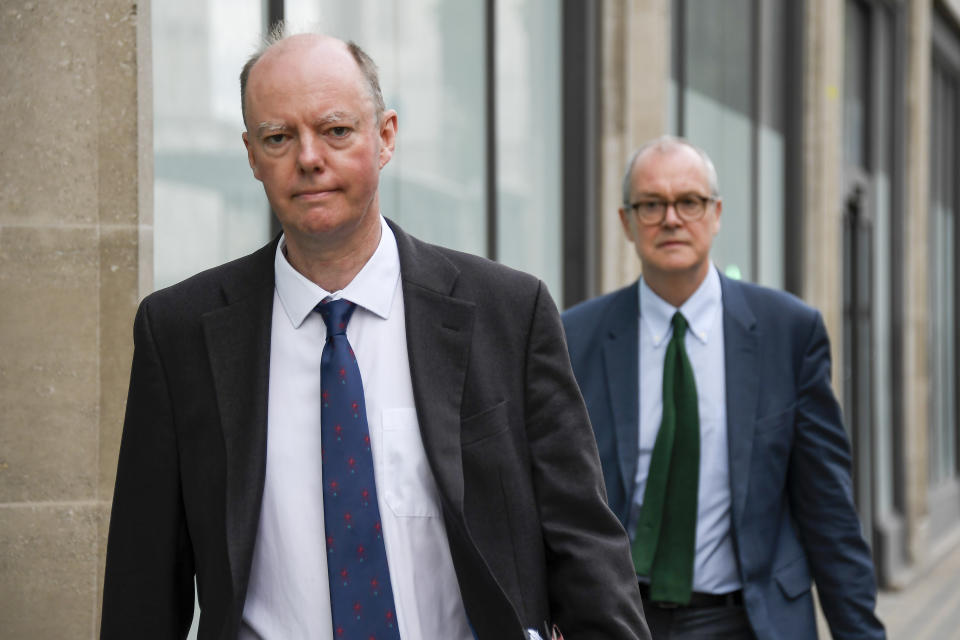Government 'could face backbench resistance' if trying to push through second lockdown

The government could face resistance from its own backbenchers if it tries to force through a second lockdown, a senior Tory has warned.
Conservative MP Sir Graham Brady indicated ministers could have a revolt on their hands if they try to introduce new lockdown measures without proper scrutiny in Parliament.
Boris Johnson spent the weekend considering whether to introduce a second coronavirus lockdown in England.
He is reportedly considering a two-week mini lockdown, according to the BBC.
On Monday morning, the government’s two chief scientists will make a TV appeal and say the UK is at a “critical point” in the coronavirus pandemic.
On Sunday, there was a backlash following reports the government will lift the rule of six for 24 hours on Christmas Day to allow families to see each other.
Health secretary Matt Hancock has said he would report a neighbour to police for breaking COVID-19 self-isolation rules.
Sir Graham said ministers had “got into the habit of ruling by decree”.
He told BBC Radio 4’s Today programme: “The British people are not used to being treated like children.”
Sir Graham, the chairman of the powerful Tory backbench 1922 Committee, is tabling an amendment that would require the government to put any new measures to a vote of MPs.
Read more: Expert says UK must build immunity instead of going into second lockdown
He said more scrutiny of the so-called rule of six would have enabled MPs to question why the limit was put at six and not eight or ten and why children were included in England and not in Wales or Scotland.
He denied that greater scrutiny would prevent ministers from acting swiftly to deal with the pandemic.
“Governments find it entirely possible to put things to Parliament very quickly when they choose to do so,” said Sir Graham.

At 11am on Monday, Professor Chris Whitty, England’s chief medical officer, and Sir Patrick Vallance, the government’s chief scientific adviser, will warn that the coronavirus trend is “heading in the wrong direction”.
Prof Whitty is expected to say: "The trend in the UK is heading in the wrong direction and we are at a critical point in the pandemic.
“We are looking at the data to see how to manage the spread of the virus ahead of a very challenging winter period.”
On Sunday, another 3,899 daily coronavirus cases and 18 deaths were reported in the UK.
Watch the video below
On Monday, transport secretary Grant Shapps said an increase in deaths from coronavirus will follow in the UK as it has in Spain and other nations.
Shapps told Sky News: “We’re seeing the hospital admissions creeping up, albeit deaths haven’t followed as yet. What we do know, looking at places like Spain, that will follow.”
He said the UK is in a “critical moment” and warned if people do not follow the rules “we’re going to end up back in situations we don’t want to be in”.
He added: “It is clear we’re just a few weeks behind what we’re seeing elsewhere in Europe.
“You only have to look at what’s happening in France, particularly in Spain, and you can see that things have taken off there, including, I’m afraid, deaths. So it is very important that we do everything we can to bear down on this.”
Coronavirus: what happened today
Click here to sign up to the latest news and information with our daily Catch-up newsletter

 Yahoo Movies
Yahoo Movies 


